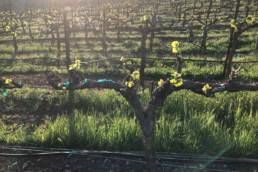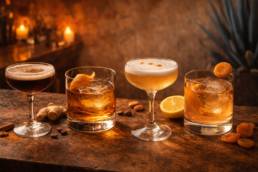Why you ARE an expert (of your palate) in wine and food
Misconceptions of a “refined” palate
There are many working parts to the flavors, aromas and textures we experience in different alcoholic beverages, namely wine and spirits. The properties and nuances can be daunting to any consumer and there are masochistic self-flagellators that dedicate a lifetime to (attempting) to understand them. Whether they add or detract from the appreciation of a beverage is another debate entirely (and another opinioned content piece). For the purpose of John (or Joan) Q. Consumer, there are a few things we can learn to help us understand what we are drinking and why it affects our palate the way it does (content piece).
 The first step in consumer wine and spirits appreciation is the coming to the realization that there is nothing wrong with your “palate”. I put that in quotes because I think being able to smell wine is more important than what your palate tells you about wine. Technically, your taste buds only tell you the five elements (sweet, sour, salty, bitter and umami) of taste where your sense of smell tell us so much more. You can find out more about this digression on how we taste and smell. I digress.
The first step in consumer wine and spirits appreciation is the coming to the realization that there is nothing wrong with your “palate”. I put that in quotes because I think being able to smell wine is more important than what your palate tells you about wine. Technically, your taste buds only tell you the five elements (sweet, sour, salty, bitter and umami) of taste where your sense of smell tell us so much more. You can find out more about this digression on how we taste and smell. I digress.
This notion that the “regular” consumer does not know what they like or not is a ridiculous and egotistic view confabulated by some self-inflated wine ponce. Let me first give some cred to the fact that recognizing these nuances in wine and spirits, understanding the chemical changes occurring with production variances and aging, and being able to identify these subtleties while tasting blind takes years of tasting and studying to master. Make no mistake, I’m not downplaying any of that. What I am saying, maybe not so eloquently, is that the person drinking the wine or spirit doesn’t have to comprehend all those things to have a level of appreciation for the product. They certainly do not need ANY knowledge at all to know what they like, or what agrees with their “palate”.
I was at a tasting where there were tradesmen, experts, and consumers alike with varying levels of wine education and experience. During one of the tasting segments, an engaged (but novice) consumer was asked if they enjoyed a young Cabernet Sauvignon that was just poured for them. Anyone having some wine experience recognized this wine as expensive, with a cult following. Since we proverbially drink with our eyes first, people assume its quality even before the first taste.
The novice sampler had no such preconceived jaded opinions and responded with honesty and humility. They stated they were not a fan due to it drying their mouth out and seemed a little bitter. This perception of tannin in the wine is understandable, especially in a young wine. Some of these young Cabernets can almost leave you feeling like you need a water chaser. The power of marketing has the domestic consumer believing that this is how these wines should present. And, if you are refined enough, you’ll appreciate them as well.
Thus, the response of this snooty ponce of a wine guy was first identifying them as a novice, which they verbalized. They then provided them with the encouragement that once their palate was “more refined” they too could appreciate these types of wines. If you are sitting there with your mouth open and filled with angst, then you are my type of consumer. I was absolutely gob-smacked. What could have been a delightfully encouraging learning experience for this interested but novice consumer, turned into a beratement.
encouragement that once their palate was “more refined” they too could appreciate these types of wines. If you are sitting there with your mouth open and filled with angst, then you are my type of consumer. I was absolutely gob-smacked. What could have been a delightfully encouraging learning experience for this interested but novice consumer, turned into a beratement.
So, I did what any other well-studied, snob-loathing consumer advocate would do in this case. I opened my big mouth and spoke to the defense of our, now ego-injured, wine neophyte. I stated that the audience member was correct about the nature of the wine and asked the wine pour-boy if he was aware of thresholds of perception. The fact that tannins produce astringency is well studied but how each consumer perceives these tannins on their individualized palates, can be extremely varied and personal. This over perception of bitterness doesn’t convey a palate flaw, rather it more correctly shows this consumer has a sensitivity to bitterness and tannin.
I turned to the now wide-eyed taster and asked if they liked brussels sprouts, kale, strong tea and if they liked coffee, how they drank it. In a surprised voice they answered that they didn’t like any of those vegetables (too bitter), my tea needs sugar, and when they did drink coffee, it would need to have some cream and sugar in it. “Classic”, I said loud enough for all to hear me. This person is a super taster regarding bitterness, I said. They have a lower threshold of perception, probably lower than you or me. So, there is nothing wrong with their palate. They actually are less deficient in tasting bitterness than the rest of us. Cream in coffee reduces our ability to perceive tannin and sugar overcomes bitterness; Ever put sugar in your collards?
I wasn’t trying to be an arse but the situation really struck a chord with me. Yes, it is possible to misinterpret aromas, flavors, and other nuances in the wine if you have not spent time and effort learning these elements and how they influence each other. The problem also, is that we shun people that don’t like what we like or have different tastes. The shunned go away feeling like they are inferior and the shunner becomes ignorantly and wrongfully empowered by the exchange; which increases the likelihood of repeating the process in the future.
So, you are the master of your own palate (sensory perceptions). Unfortunately, many do not take the time to learn the why behind what they like and don’t like. Instead of tasting (food, wine, etc.), we just throw it into our gobs with blissful ignorance and barely swallow before reaching for more. When you actually take the time to think about what you are eating and drinking and the nuances or flavors, everything changes. Once you start that journey to sensory exploration, you will experience a whole new world. Everything tastes bolder, with more enhanced aromas and flavors; even the sunlight feels better on my face.
This journey (and it is a journey) does come with a few drawbacks that I would be remiss not to mention. The first is that this exploration of food and drink may lead to the level of consumption equal to that of someone with expectations of going to the electric chair. Also, once you obtain the knowledge of nuance in your consumption, it will forever plague you. There is no way to get out of that proverbial rabbit hole and back to blissful ignorance; equivalent to Neo taking the red pill.




